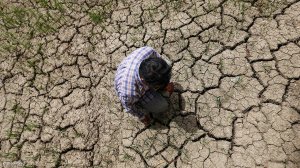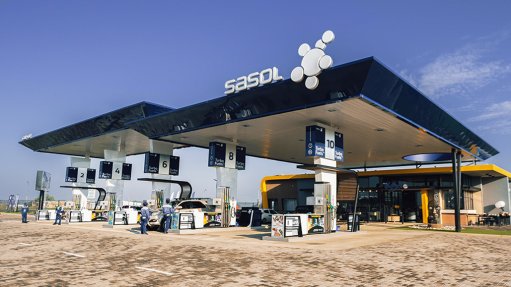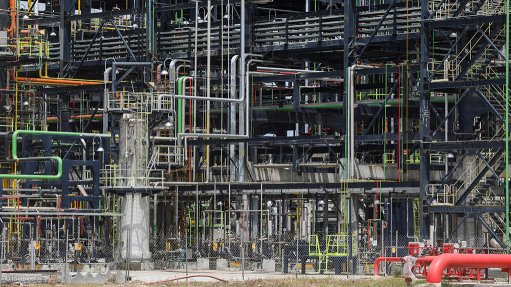Africa set to become global climate migration ‘hotspot’
A new World Bank report warns that sub-Saharan African could make up 86-million of the world’s 216-million climate migrants by 2050, while North Africa could have the largest share of internal climate migrants relative to total population.
Titled ‘Groundswell’, the report updates and expands on modelling contained in a 2018 report by the same name.
That report warned that climate change could lead 143-million people in three regions of the world (South Asia, Latin America and sub-Saharan Africa) to migrate within their own countries.
The updated report includes three more regions (East Asia and the Pacific, North Africa and Eastern Europe and Central Asia) and states that, absent immediate and concerted action, “hotspots” of internal climate migration could emerge as early as 2030 and continue to spread and intensify by 2050.
Of the six regions examined in the two reports, sub-Saharan Africa is projected to have the largest number of internal climate migrants.
“The region is highly vulnerable to climate change impacts, especially in already fragile drylands and along exposed coastlines. Agriculture, which is almost all rainfed in the region, also accounts for a large share of employment.”
Internal migration in North Africa, meanwhile, is projected to affect 19-million people by 2050, or 9% of the total population.
“This is due to a great extent to severe water scarcity, as well as the impacts of sea-level rise on densely populated coastal areas and in the Nile Delta.”
Climate change, the reports states, is a powerful driver of internal migration because of its impacts on people’s livelihoods and loss of livability in highly exposed locations.
Hotspots of internal climate migration will intensify in rural, urban, and coastal systems and people will migrate due to water scarcity, lower crop productivity, sea level rise and storm surges.
Some places may also become less livable, owing to heat stress, extreme events and land loss.
The report argues that four policy recommendations, if acted on immediately, could reduce the scale of climate migration by as much as 80%. The recommendations include:
- reducing global emissions and making every effort to meet the temperature goals of the Paris Agreement;
- embedding internal climate migration in far-sighted green, resilient, and inclusive development planning;
- preparing for each phase of migration, so that internal climate migration as an adaptation strategy can result in positive development outcomes; and
- investing in better understanding of the drivers of internal climate migration to inform well-targeted policies.
““The Groundswell report is a stark reminder of the human toll of climate change, particularly on the world’s poorest – those who are contributing the least to its causes. It also clearly lays out a path for countries to address some of the key factors that are causing climate-driven migration,” World Bank sustainable development VP Juergen Voegele said.
Comments
Press Office
Announcements
What's On
Subscribe to improve your user experience...
Option 1 (equivalent of R125 a month):
Receive a weekly copy of Creamer Media's Engineering News & Mining Weekly magazine
(print copy for those in South Africa and e-magazine for those outside of South Africa)
Receive daily email newsletters
Access to full search results
Access archive of magazine back copies
Access to Projects in Progress
Access to ONE Research Report of your choice in PDF format
Option 2 (equivalent of R375 a month):
All benefits from Option 1
PLUS
Access to Creamer Media's Research Channel Africa for ALL Research Reports, in PDF format, on various industrial and mining sectors
including Electricity; Water; Energy Transition; Hydrogen; Roads, Rail and Ports; Coal; Gold; Platinum; Battery Metals; etc.
Already a subscriber?
Forgotten your password?
Receive weekly copy of Creamer Media's Engineering News & Mining Weekly magazine (print copy for those in South Africa and e-magazine for those outside of South Africa)
➕
Recieve daily email newsletters
➕
Access to full search results
➕
Access archive of magazine back copies
➕
Access to Projects in Progress
➕
Access to ONE Research Report of your choice in PDF format
RESEARCH CHANNEL AFRICA
R4500 (equivalent of R375 a month)
SUBSCRIBEAll benefits from Option 1
➕
Access to Creamer Media's Research Channel Africa for ALL Research Reports on various industrial and mining sectors, in PDF format, including on:
Electricity
➕
Water
➕
Energy Transition
➕
Hydrogen
➕
Roads, Rail and Ports
➕
Coal
➕
Gold
➕
Platinum
➕
Battery Metals
➕
etc.
Receive all benefits from Option 1 or Option 2 delivered to numerous people at your company
➕
Multiple User names and Passwords for simultaneous log-ins
➕
Intranet integration access to all in your organisation





















